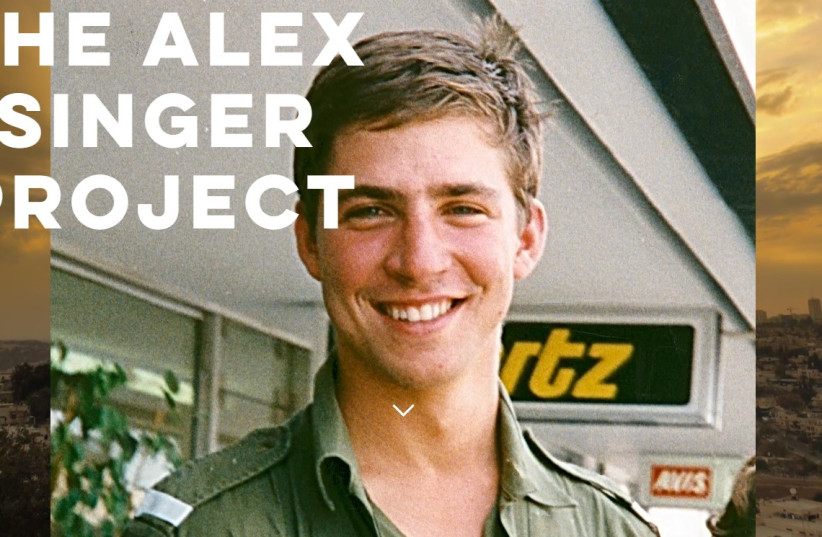Like so many, I first “met” Suzanne Singer in print, in the smart, sensible column she wrote for Moment magazine as its managing editor from 1987 to 2004. Fortunately for me – and my family – rather than just encountering her in typeface “From the desk of Suzanne Singer,” I eventually met her in real life at the Shabbat table of Suzanne and Max Singer. The second half of this larger-than-life couple died this Sunday, two years after Max, her husband of 61 years. She was 86 years young.
Suzanne combined an old-fashioned courtliness with a modern snappiness that dazzled in print and in person. A few years ago, when Max was fighting cancer – and she was too – I bumped into her on Beit Lechem Street near their home. I was hobbling on crutches, having broken my leg running.
“How are you,” Suzanne asked, concerned, because she was the type who easily, lovingly, escalated the most casual of meetings into the most profound of interactions.
“How am I?” I replied – how are you – and how’s Max? This” – I pointed to my leg – “is minor!” – implying that what Max and she faced was major.
Without skipping a beat, Suzanne looked at me and said, “It’s never minor when it happens to you.”

Tragically, Suzanne and Max experienced a major, unfathomable loss in 1987, when their son Alex was killed in battle in Lebanon. Such a blow could have easily derailed this couple – and their family. But neither Max nor Suzanne had any capacity for bitterness or paralysis.
IN 2020, marking the twentieth anniversary of Ehud Barak’s humiliating retreat from what Suzanne called “the war without a name – without a national memory,” she described the death of “our son Alex… on September 15, 1987, his 25th birthday, in a battle that prevented terrorists from entering a northern Israeli village on a mission to kill.
“Alex, a platoon commander in Givati, his company commander, Ronen Weissman, and Sergeant Oren Kamil all died by the same hidden sniper as they ran to help each other. The remaining young soldiers, now without their commanders, continued to fight as they had been trained and the terrorists fled. Families in Israel remained safe in their beds that night.”
Beyond respecting the sacrifice their son had made, following that trauma, Suzanne and Max published Alex’s letters, diary entries and drawings in the must-read book, Alex Building a Life: The Story of an American who Fell Defending Israel. Translated into Hebrew too, the book has inspired thousands of young people, in Israel and abroad, explaining to them the power of peoplehood and the meaning of this Jewish state.
On the Alex Singer Project’s website https://www.alexsingerproject.org/, his parents wrote: “Alex is remembered not because he was killed in the IDF on his 25th birthday trying to help his commander. He is remembered by those who knew him and experienced his joy and humor about life and his discovery of his own role.”
CHARACTERISTICALLY, Max and Suzanne decided to live Alex’s ideals – by moving to Israel. “You twisted history,” their son Daniel, who made aliyah before them, said at the funeral Sunday afternoon.
Daniel emphasized how deeply American his parents –and grandparents – were. Max graduated from Harvard Law, Suzanne graduated from Swarthmore College. They had to break out of their American cocoons, defying friends, family, and colleagues, to lead the rest of their family to the Promised Land.
“Today,” their son Benjy said, all three surviving sons, eleven grandchildren, and two great-grandchildren live in Israel –“thanks to you. You did the work, leaving a legacy of children who are not confused,” who know who they are as Jews and as people.
“It’s such a gift to have parents who are models,” their son Saul added. They were not just role models as Zionists, not just character-builders, but impressive thinkers too: “Mom and Dad were always about ideas,” Saul said – and neither could be easily boxed into one field or another, one category or another.
Suzanne’s daughter-in-law, Wendy Singer, honored her mother-in-law as “someone who straddled so many worlds.” She trained to be a science teacher at Columbia University’s Teachers’ College, class of 1956. She worked with Herschel Shanks from 1977 to 1998 at the Biblical Archaeological Review. Simultaneously, at Moment, she ranged widely in her columns and in the writers she nurtured so generously, covering politics, culture, policy, Soviet Jewry and Zionism effortlessly, eloquently, insightfully.
A pioneering powerhouse who defied stereotypes, she was not a grandmother deified for her cooking. Her granddaughter Noa toasted Suzanne’s insistence that the grandkids learn to write letters effectively and told a revealing story about how in the last weeks of her life, Suzanne read a book about Islam – explaining she did not know enough about Islam, and it was time to learn.
Our Zionist corner in Southern Jerusalem runs on brainpower and soulpower. And that’s what made Suzanne Singer the Grande Dame of Baka. She was creative and curious yet principled and pragmatic. You could feel the Swarthmore in her soft and sunny affect which only enhanced the ferocity of her intellect.
Eulogizing Herschel Shanks in February, 2021, Suzanne wrote that he “served biblical archeology with joy.” Indeed, Suzanne Singer also served her family, her people, her old country of America, and her new country, Israel, with joy – but with grace and grit and depth, too. May her name and memory be for a blessing.
